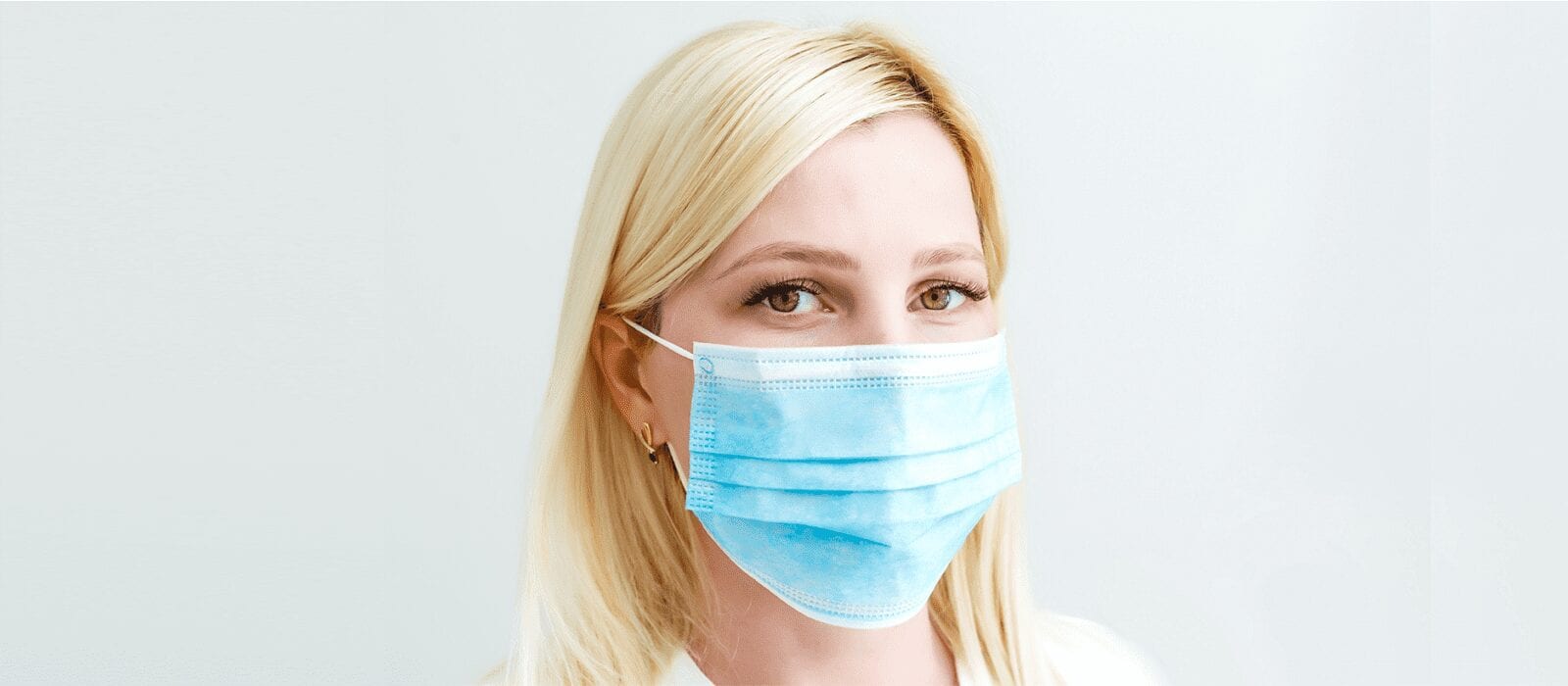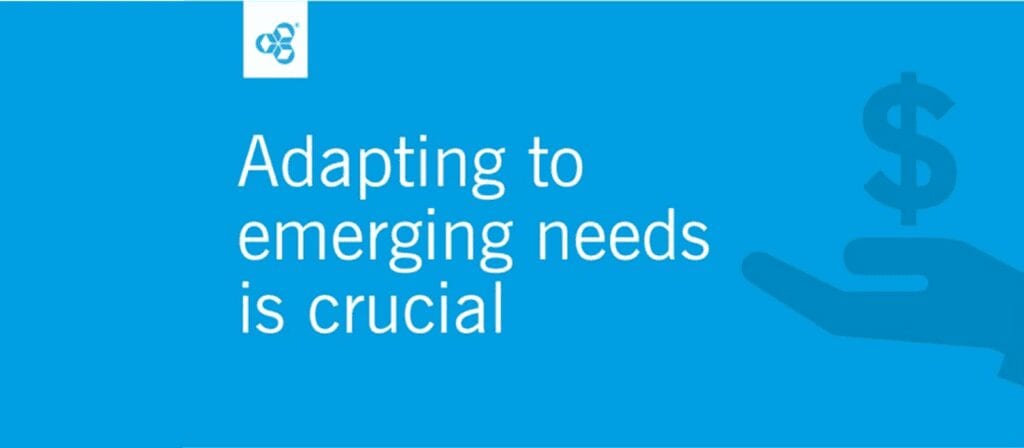ICMIF member AFA Försäkring (Sweden) creates security at work for 4.5 million people, their families and relatives. The mutual offers insurance cover to provide financial support in the event of illness, work injury, lack of work, death and parental leave and is part of the labour market’s collective agreement. The insurer also supports a great number of research and development projects that contribute to a better work environment and health.
Within the framework of AFA Försäkring’s research areas of work, environment and health, the mutual announced earlier this month that it was funding further research into the effects of the ongoing Covid-19 pandemic. The five projects that have been granted funding will look at teleworking; the pandemic’s impact on the working environment at a laundry; the working environment in elderly care; and the spread of infection on surfaces in healthcare and dentistry. To date, AFA Försäkring has invested in a total of 23 projects for research in the area and further projects are expected at the end of the year.
Helena Jahncke, Head of the R&D Department at AFA Försäkring said: “Now that the spread of infection has entered a second wave, it feels extra important that we prioritize research on the consequences of the pandemic. That is why we are now granting funding for another five projects on how Covid-19 affects the work environment, health and leadership.”
“The coronavirus affects the labour market and people throughout Sweden in one way or another and we really want the research we provide support for to be useful in working life,” she says.
To date, a total of 23 projects have been granted funding in the area. Information on all 23 research projects that have so far received funding – research focusing on how covid-19 affects the work environment, health and leadership – is available on AFA Insurance’s R&D website.
“The call to apply for funding from AFA Försäkring for Covid-19 research is now closed. Interestingly, the interest has been very great and we have received significantly more applications than expected. The projects that have now been granted funding came in back in June, but we hope to be able to grant further projects before the end of the year,” says Helena Jahncke.
Below is a list of the five covid-19 projects that received funding from AFA Försäkring in the most recent decision round.
Effects of an external crisis on the work environment, health and equality among Swedish and foreign-born workers: a case study of a laundry
Equality in the labour market is essential for sustainability and social justice. Today, there is a lack of research on working conditions for foreign-born people in comparison with Swedish-born people and knowledge about the impact a societal crisis can have on equality. A study of how the work environment, health and equality have been affected in companies that have reorganised due to the Covid-19 pandemic can provide increased knowledge about the challenges that economic slowdown and crisis can bring.
Jennie Jackson, at the University of Gävle, has been awarded SEK 1,124,000 to investigate how Covid-19 has affected work organisation, physical and psychosocial work environment, health and equality in a laundry that handles textiles for laundering from hospitals. The study includes documenting whether changes in the organisation and work environment as a result of the pandemic have looked the same for women and men and for those born abroad and born in Sweden.
The project will run through September 2022 and is expected to provide increased knowledge about organisational changes in connection with the crisis and its effects on the work environment, health and equality. The results are expected to be useful in the laundry industry, in industry in general, in other multicultural workplaces and in professions outside the healthcare sector where people are also exposed to the risk of infection.
Teleworking and psychosocial health during the Covid-19 pandemic
During the Covid-19 pandemic, many employers have urged staff to work from home to minimise the spread of infection. The transition to teleworking can affect well-being and productivity, not least for employees without experience of home working. For managers, it can be a challenge to be responsible for employees’ work environment at a distance. A study of the effects of the transition to teleworking on psychosocial health and work performance can provide new knowledge about teleworking.
Adesuwa Omorede, at Mälardalen University, has been awarded SEK 2,000,000 to study managers’ and employees’ experiences of working remotely during the Covid-19 pandemic. The study will focus on psychosocial health, well-being, work-life balance and productivity.
The project runs through September 2022 and is expected to provide knowledge about how the transition to telework during Covid-19 and the new working conditions it has entailed has affected managers’ and employees’ psychosocial health and work performance. The results will hopefully contribute to healthy and productive remote working in the future.
Nursing and care staff’s experiences of working in special housing and in-home care in Sweden during the Covid-19 pandemic
A country’s ability to deal with a pandemic depends to a large extent on the healthcare system and the skills and willingness to work of its staff. Previous research shows that healthcare professionals during epidemics / pandemics can suffer from anxiety, stress, depression and post-traumatic stress disorder. A study of nurses’ and care assistants’ experience of care for the elderly during the covid-19 pandemic can contribute to increased knowledge about how care work can be organized in the event of a crisis.
Annica Lövenmark, at Mälardalen University, is awarded SEK 2,198,000 to study the nurses ‘and care assistants’ experiences of elderly care in special housing and in the home care service in connection with covid-19. The study focuses mainly on the staff’s experiences of physical and psychosocial work environment, health, safety, leadership, support and strategies and tools for future crisis situations.
The project runs through December 2023 and is expected to provide knowledge about elderly care work during the covid-19 pandemic. The knowledge is expected to form the basis for support measures, strategies and tools for a better working environment, health and leadership in elderly care. The results can also be useful for other health care professionals.
Voluntary or involuntary teleworking – how does it affect occupational health?
Digital technology has enabled staff in certain professions to perform tasks without being in their usual workplace. During the coronavirus pandemic, authorities and employers in Sweden have recommended that those who can work from home to minimise the spread of infection should do so. Today’s knowledge of how health is affected by teleworking is mainly based on studies of working remotely on a voluntary basis. A study of the effects of this new involuntary teleworking on the work environment and health should contribute new knowledge about teleworking in general.
Marina Heiden, at the University of Gävle, has been awarded SEK 2,599,000 to investigate how employees at an industrial company and in a municipality experience their physical and psychosocial work environment during recommended teleworking in connection with Covid-19. The study includes examining the effects of telework on productivity, work-life balance and well-being.
The project runs until September 2023 and is expected to provide new knowledge about how involuntary teleworking affects the work environment and people’s health compared to voluntary teleworking. The results may lead to changes in future recommendations for teleworking.
SARS-CoV-2 on surfaces in a hospital environment
The infectious disease Covid-19 is caused by the virus SARS-CoV-2. The virus is spread via droplets when an infectious person coughs or sneezes or through a person’s hands. It can accumulate on surfaces in the vicinity of the infected person and possibly pose a risk to healthcare professionals. Increased knowledge of how SARS-CoV-2 is spread in the care environment could contribute to better routines and protective equipment and thereby reduced infection among healthcare staff.
Erik Senneby, at Lund University, has been awarded SEK 250,000 to investigate on which surfaces in the hospital and dental care environment that SARS-CoV-2 collects when caring for patients with Covid-19 and whether it is contagious upon accumulation. The study includes examining the connection between viruses in the air and on surfaces and to find out if the virus collects on staff work clothes and protective equipment.
The project runs through July 2021 and is expected to show how SARS-CoV-2 accumulates on surfaces during hospital and dental care of patients with Covid-19. The result is expected to provide increased knowledge about routes of infection and hygiene routines and may contribute to a better basis for risk assessment of the work environment in healthcare and dentistry.






